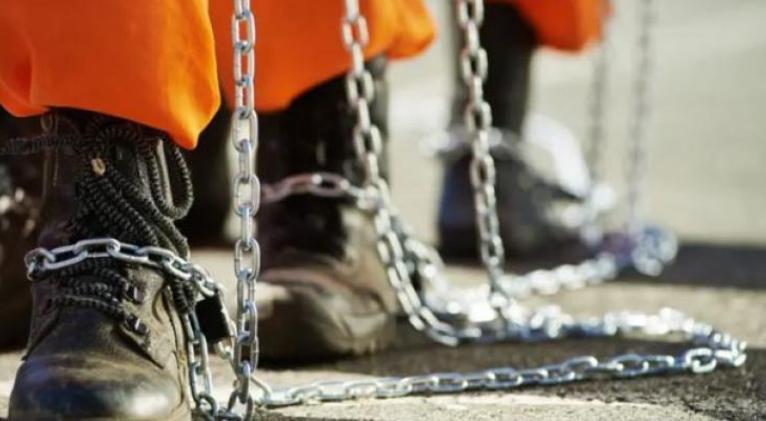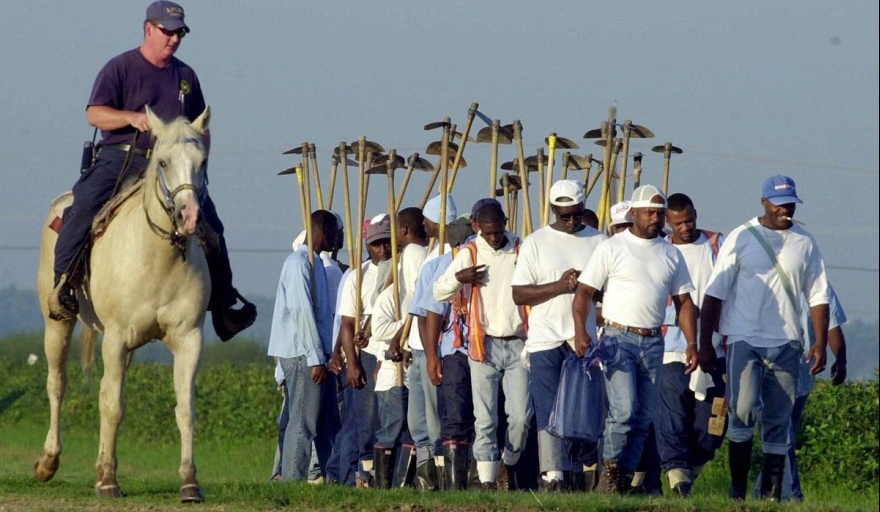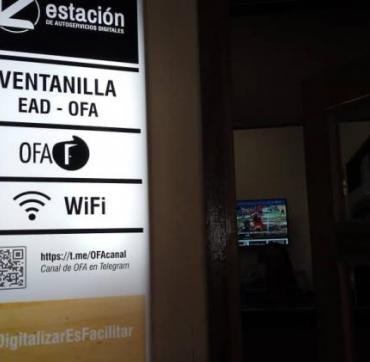USA: Criminal Horrors, not Just Foreign
especiales

Almost daily news arrives about prison riots, horrors that are experienced in those dens not only in the Third World, generally more abandoned, but in the most flourishing cities of the First World.
It doesn’t matter that US military and intelligence officers flock to provide aid to regimes that are dear to them, such as those of Peru and Ecuador, to supposedly ease prison tensions. There, the drug trade is latent in the midst of general insecurity and the unstoppable drug trafficking, which is increasingly flourishing.
Those who know about the rise of drugs in nations where the United States has intervened militarily or has bases in their territories know of the increase in this regard, such as in Afghanistan and nearby Colombia.
Western media are dedicated to reporting the horrors of prisons in nations they consider inferior in every sense, ignoring, for example, the situation of Palestinian prisoners in Israeli jails.
Of course, each country, each government must answer about the conditions in which the prison population lives; for each blunder in this sense, the West takes advantage of the situation to denigrate those it considers inferior beings.
Now in Rwanda, for the second time in three years, the complaint has resurfaced that there are prisoners who practice cannibalism in the Gitarama prison, located on the edge of the jungle and on totally mined stretches of land.
The facility has a capacity of 500 people, but houses 6,000 prisoners, many of whom die from lack of oxygen.

They also live in unsanitary conditions in the center, where there’s no state medical care.
Every week, the penitentiary institutions deliver food and collect corpses. The weak and sick have no access to food, and this insufficiency has forced its residents to commit cannibalism. Prisoners kill their fellow human beings and then eat their flesh.
Prisoners in Gitarama sleep on the damp floor. The space is so small that prisoners are constantly forced to stand and take turns to rest. Meanwhile, many people lose their legs due to fatigue, inflammation and infections.
U.S., ALWAYS COMPETITIVE
Perhaps many think that there can be nothing worse in this regard, but as we know, the “competitiveness” of the United States, even in the most morbid matters, can always bring up something similar or worse.
We already know of the huge number of people imprisoned in North American territory, amounting to more than three million, the vast majority black and many of them forced to accept sentences that they don’t have, because they cannot legally prove their innocence, and thus avoid a greater number of years in prison.
In these cases, they are victims of a regime that forces them to commit crimes or perish, being transferred to centers where they can find death or become even more criminal.
PROPAGANDA, JUST THAT
Despite the propaganda that private conglomerates tend to hire prisoners, make them good money and reduce their sentences, the truth is that this does not work objectively and makes it inevitable that the horror of what was previously narrated about the prison in Rwanda has a parallel in the so-called Angola, known as 'the Alcatraz of the South', in Louisiana.
Angola, a plantation that owed its name to the fact that the slaves who cultivated it came from that African country, is not simply a high-security prison in the USA, but is also a forced labor camp, where "slavery is legal."
There are no newspapers or monitors in front of their cells on which to watch sitcoms, as the films on the subject indicate. They are isolated from the world. Inmates know that they will not make it out alive, but not because of their death sentences, but because of something simpler: 90% of the prisoners in the penitentiary die there, due to its harsh conditions.
The lights go on at five a.m. and breakfast is served at six. From then until three-thirty in the afternoon, when dinner is served, the prisoners work under the subtropical sun of the Mississippi Delta. They only take a break of just over an hour at ten-thirty in the morning to return to the pavilions and eat.
With an area of 7,300 hectares, the core of the prison's activity is centered on agriculture, although there are some who work in workshops and small industries. For example, all Puerto Rican license plates are manufactured there.
The prisoners, almost 90% black, cultivate the fields of corn, soybeans, cotton and wheat. They work in groups, all wearing their uniforms of blue jeans and white short-sleeved shirts, while the guards, all white, on foot and on horseback, watch over the progress of the work with rifles in their hands.
“Angola is very beautiful. But it’s a cemetery. When you arrive, you are dead. Even your family forgets you,” said Robert King Wilkerson, one of the few lucky ones who left Angola prison alive.
“I spent almost 30 years under the same regime as those condemned to death. They took me out to the yard for three hours a week if the weather allowed it. They even chained me up to take me to the hospital. Those who misbehaved were locked up in cells with a metal door, without even a bar to see the opposite wall. Please don't talk to me about incentives," he explained to journalists who were able to visit the prison.
In the execution room —or as it’s called in the United States, the Death Chamber— of the Angola Penitentiary, with white walls, there’s only a red fire extinguisher, a black stretcher and a small grey table with some buttons and a microphone for the condemned man to say his last words.
In front of this microphone there are two windows. On the other side of them, in separate rooms, are the journalists and the relatives of the victims of the person to be executed. On the wall there are two red telephones, in case authorities call to suspend the execution. "But that only happens in the movies. No governor of Louisiana has called to suspend an execution at the last minute since I've been here," explains Gary Young, deputy director of Classification at Angola and one of the people who decides the future of each prisoner.
At the end of last year, Angola had 5,108 inmates. Of these, Young is competent over 5,033. The only ones who escape his jurisdiction are the 85 condemned to death who, a few hundred meters from the building where the executions are carried out, await their time to lie down on that stretcher and die.
GENOCIDAL WAR
The Thirteenth Amendment to the North American Constitution states: “Neither in the United States nor in any territory under its jurisdiction shall there be slavery nor forced labor, except as a punishment for crime for which the person responsible shall have been duly convicted,” but with one exception, jail. Slavery is legal in US prisons.
But why are prisons across the country full of black people and people from the Third World, why can so many black people not find work and are forced to do anything to survive? Once you are in prison, there’s plenty of work, and if you don't want to do it, you get beaten up and thrown into a hole.
Prisons are a very profitable business. They are a way to legally perpetuate slavery. Prisons continue to be built in every state. Who will go to these prisons? Without a doubt, it will not be white people. Prisons are part of the government's genocidal war against black and Third World people.
Translated by Amilkal Labañino / CubaSí Translation Staff














Add new comment